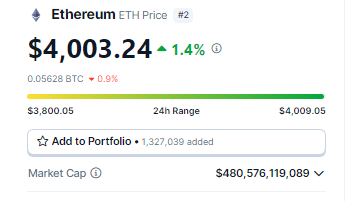The fervor surrounding the eagerly awaited Ethereum spot Exchange-Traded Fund (ETF) has hit a roadblock as regulatory silence between the US Securities and Exchange Commission (SEC) and asset managers raises doubts about the imminent approval.
Regulatory Riddles Surrounding Ethereum’s Fate
Despite the crypto market’s optimistic outlook for Ethereum’s spot ETF, the SEC’s noticeable lack of commentary has set off alarm bells. Eric Balchunas, Bloomberg’s senior ETF analyst, has flagged this radio silence as a “negative sign,” pointing out that the SEC had previously commented on Bitcoin spot ETFs.
The absence of dialogue is viewed as a factor diminishing the approval odds each passing day, contributing to an air of uncertainty within the cryptocurrency community.
Normally I’d say this was good sign but as far as I know the Staff has not given any comments yet to the issuers, which is not a good sign as we past when they gave comments on btc ETFs. Further, there’s no court loss hovering over. And the correlations bt futures and spot isn’t… https://t.co/AVMhL1QKGf
— Eric Balchunas (@EricBalchunas) March 8, 2024
Adding a layer of complexity is the SEC’s ambiguous stance on Ethereum’s status. SEC Chair Gary Gensler’s recent remarks on whether Ethereum should be considered a security or commodity have created a foggy landscape. This uncertainty becomes a pivotal factor as Ethereum’s potential spot ETF awaits regulatory approval.
Unique Position In The Crypto Ecosystem
Investors, eager for a diverse range of investment opportunities beyond Bitcoin, have turned their attention to Ethereum. The second-largest cryptocurrency’s appeal lies in its multifaceted use cases, unlike Bitcoin’s primary function as a store of value.
Ethereum’s versatility, particularly highlighted by its upcoming “Dencun” upgrade on March 13, promises to enhance transaction processing capacity, reduce costs, and foster a more dynamic ecosystem with varied applications.
Ether market cap currently at $484 billion. Chart: TradingView.com
The correlation dynamics between Ethereum spot and futures ETF are under scrutiny, with indications that it is weaker compared to Bitcoin. This divergence in correlation adds a layer of pessimism to the market sentiment, prompting investors to carefully navigate the uncertainties surrounding Ethereum’s regulatory approval.
Ethereum: Market Dynamics And Institutional Interest
As Ethereum gains momentum, institutional heavyweights like BlackRock and Grayscale have expressed interest in Ethereum spot ETFs, mirroring the trend seen with Bitcoin.
Investors, sensing a potential approval on the horizon, have begun shifting their focus from Bitcoin to Ethereum.
This shift is not only influenced by speculation but also by Ethereum’s fundamental strengths, including ongoing network upgrades and a vibrant decentralized finance (DeFi) ecosystem.
Contrary to earlier predictions, Standard Chartered’s foresight places Ethereum’s ETF approval by May 23. This timeline aligns with expectations that the SEC might follow a similar pattern to the drawn-out process witnessed with Bitcoin.
The research suggests a trajectory of cautious deliberation, leading to a probable green light.
Ether breaking past the $4k barrier. Source: Coingecko
Ether’s Market Surge And Altcoin Potential
In the midst of regulatory uncertainties and market speculations, Ethereum’s price has recently broken through the $4,000 mark, reflecting investor confidence.
This surge is supported by Ethereum’s robust fundamentals, ongoing upgrades, and its pivotal role as a bellwether for altcoin potential.
Ethereum’s price trajectory and market dominance are becoming increasingly intertwined with the broader cryptocurrency landscape, shaping the narrative of its imminent spot ETF approval.
Featured image from Pixabay, chart from TradingView
Disclaimer: The article is provided for educational purposes only. It does not represent the opinions of NewsBTC on whether to buy, sell or hold any investments and naturally investing carries risks. You are advised to conduct your own research before making any investment decisions. Use information provided on this website entirely at your own risk.
 Ether breaking past the $4k barrier. Source: Coingecko
Ether breaking past the $4k barrier. Source: Coingecko
Comments (No)